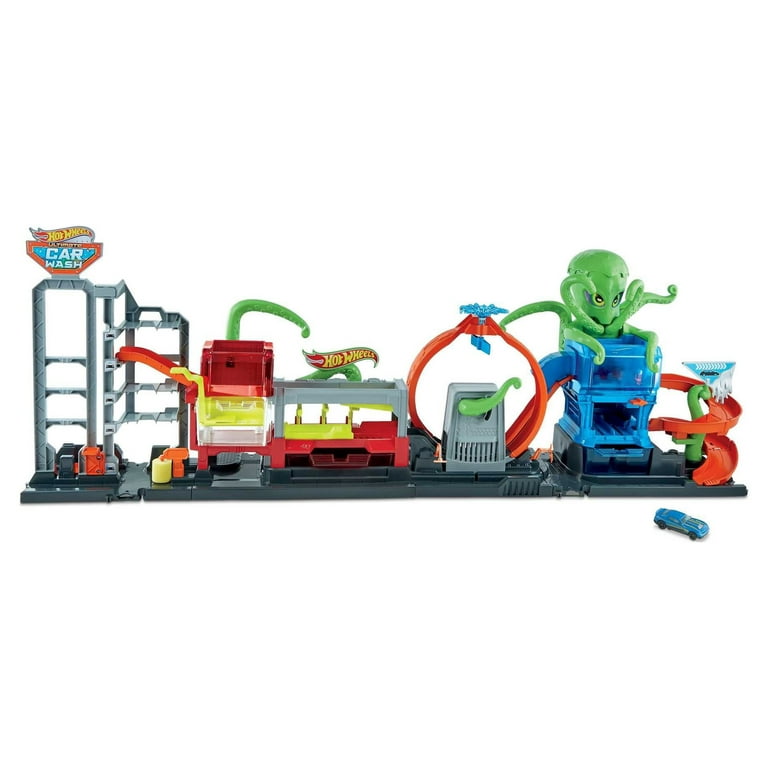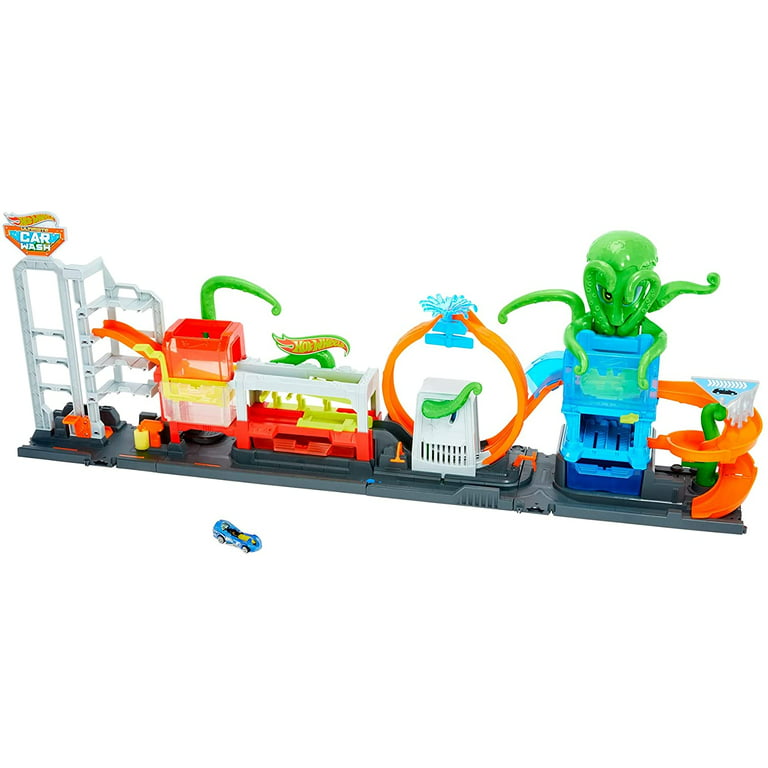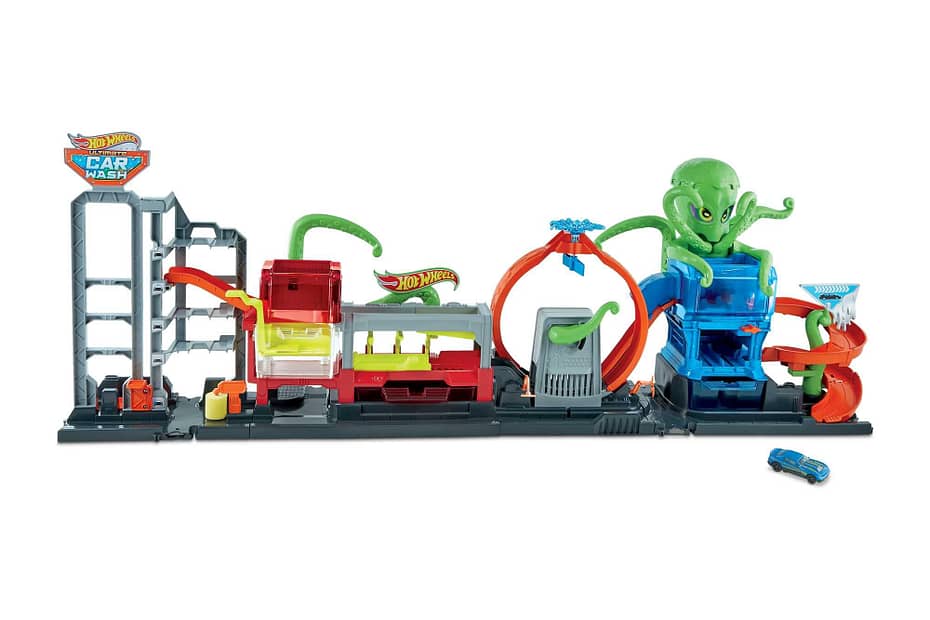A typical car wash uses about 40-80 gallons of water per vehicle. This amount can vary based on the car wash type and size.
Water usage in car wash operations is a critical aspect to consider due to growing environmental concerns. Understanding how much water a car wash uses can help in implementing water-saving strategies and technologies. As the demand for eco-friendly practices increases, car wash businesses are exploring ways to minimize water usage while maintaining high-quality cleaning services.
By adopting innovative water recycling systems and efficient washing techniques, car wash establishments can reduce their environmental impact significantly. This not only helps conserve water resources but also enhances the overall sustainability of the car wash industry.

Credit: www.walmart.com
The Impact Of Car Washes On Water Consumption
Car washes can have a significant impact on water consumption due to the volume of water they use during each wash. The average car wash can use anywhere between 40-140 gallons of water per wash, depending on the type of wash and equipment used.
Traditional Vs. Water-efficient Car Washes
Traditional car washes use excessive water compared to water-efficient methods.
Factors Influencing Water Usage In Car Washes
Water usage in car washes is influenced by type of equipment and cleaning products used.
The Impact of Car Washes on Water Consumption
Car washes can have a significant impact on water consumption, with traditional methods often using excessive amounts of water. This becomes especially apparent when considering the difference between traditional and water-efficient car washes.
Traditional Vs. Water-efficient Car Washes
Traditional car washes use excessive water compared to water-efficient methods.
Factors Influencing Water Usage In Car Washes
Water usage in car washes is influenced by type of equipment and cleaning products used.

Credit: www.amazon.com
Water-saving Strategies For Car Wash Businesses
Car wash businesses have long been associated with excessive water consumption, but with increasing concerns about water scarcity and environmental sustainability, it is imperative for car wash owners to adopt water-saving strategies. By implementing eco-friendly practices and utilizing innovative water recycling systems, car wash businesses can significantly reduce their water consumption while still delivering top-notch service. In this article, we will explore two key strategies to help car wash businesses be more water-efficient: Introduction to Water Recycling Systems and Implementing Eco-Friendly Practices.
Introduction To Water Recycling Systems
Car wash businesses can greatly benefit from implementing water recycling systems. These systems collect the water used in the car washing process, treat it, and then reuse it for subsequent washes. Not only does this reduce the amount of freshwater needed, but it also minimizes wastewater discharge into the environment. Water recycling systems typically consist of several stages, including sedimentation, filtration, and disinfection. By investing in such systems, car wash businesses can make a significant impact on their water usage, ensuring a more sustainable and environmentally friendly operation.
Implementing Eco-friendly Practices
In addition to utilizing water recycling systems, car wash businesses can further enhance their water-saving efforts by implementing eco-friendly practices. Here are some actionable steps that car wash owners can take to minimize water consumption and promote sustainability:
- Invest in high-pressure low-flow nozzles: These specialized nozzles increase the water pressure while reducing the flow rate, ensuring effective cleaning while using less water.
- Use automatic shut-off systems: Install sensors or time-controlled devices that shut off water flow when the car wash equipment is not in use, preventing wastage.
- Optimize wash cycles: Train staff to perform efficient and concise wash cycles, reducing the overall water usage per vehicle.
- Monitor and fix leaks promptly: Regularly inspecting equipment and infrastructure for leaks and addressing them promptly can prevent unnecessary water loss.
- Implement gray water systems: Gray water, which refers to lightly contaminated water from sinks and showers, can be collected and reused for non-potable purposes like irrigation or cleaning.
- Offer waterless or steam cleaning options: Explore alternative methods such as waterless or steam cleaning, which require minimal or no water at all.
- Provide employee training: Educate your car wash staff about the importance of water conservation and teach them efficient techniques for minimizing water usage during the washing process.
- Inform customers about water-saving efforts: Raise awareness among your customers about your car wash’s eco-friendly practices and encourage them to support your water-saving initiatives.
By implementing these eco-friendly practices and investing in water recycling systems, car wash businesses can make a significant contribution to water conservation. Not only will this help protect our planet’s valuable water resources, but it will also appeal to environmentally conscious customers who prioritize sustainable options when choosing car wash services. Through a collective effort, we can create a greener future for the car wash industry while ensuring top-quality results for every vehicle.
Consumer Awareness And Choices
As consumers, we play a crucial role in shaping the environmental impact of everyday activities, including car washing. By understanding the water consumption of different car wash methods, we can make informed decisions and support environmentally responsible options. Educating consumers on water conservation and supporting eco-friendly car washes are key areas that empower us to make sustainable choices.
Educating Consumers On Water Conservation
When consumers are aware of the water consumption of various car wash methods, they can make environmentally conscious decisions. Educational initiatives by environmental organizations and car wash industry leaders can help raise awareness. Providing simple, factual information on water usage per wash cycle and the impact on local water resources can enable consumers to make informed choices.
Supporting Environmentally Responsible Car Washes
Environmentally responsible car washes employ water-saving technologies and eco-friendly practices. Choosing these car wash facilities reduces water wastage and minimizes the environmental footprint of car maintenance. By actively selecting such car washes, consumers can contribute to preserving water resources and supporting sustainable business practices.

Credit: www.walmart.com
Regulations And Standards In The Car Wash Industry
In the car wash industry, regulations and standards play a crucial role in promoting water conservation and sustainable practices. Adhering to government policies and certifications for sustainable car wash practices not only ensures environmental responsibility but also promotes efficiency and customer trust.
Government Policies To Encourage Water Conservation
Government policies are instrumental in driving the car wash industry towards water conservation. Regulations such as water use restrictions and environmental standards not only guide car wash operators but also educate consumers about the importance of water conservation. By adhering to these policies, car wash businesses contribute to the broader effort of preserving water resources and protecting the environment.
Certifications For Sustainable Car Wash Practices
Obtaining certifications for sustainable car wash practices is a significant step for car wash operators committed to minimizing their environmental impact. Eco-friendly certifications and water-efficient standards not only demonstrate a commitment to sustainability but also attract environmentally conscious customers. These certifications often involve implementing recycling systems, using biodegradable detergents, and adopting efficient water usage practices, ultimately leading to a more environmentally friendly and cost-effective car wash operation.
The Future Of Car Wash Water Usage
Discover the innovative approaches in car wash industry, emphasizing on reducing water consumption through advanced technologies. Efficient systems aim to minimize water usage without compromising cleaning quality, showcasing sustainable practices for a greener future.
As the world becomes increasingly focused on environmental sustainability, industries are exploring ways to reduce their water consumption and minimize their carbon footprint. The car wash industry is no exception. With the rising concern over water scarcity and the need for conservation, the future of car wash water usage lies in innovative technologies and community initiatives that promote water-efficient practices.
Technological Innovations For Water-efficient Car Washes
The rapid advancements in technology have paved the way for water-efficient car wash solutions. Car wash manufacturers are developing state-of-the-art equipment that utilizes less water while still delivering superior cleaning results. These cutting-edge systems incorporate features like high-pressure nozzles, adjustable spray patterns, and precise water control to optimize water usage.
One such innovation is the introduction of water-recycling systems. These systems capture, treat, and reuse water, significantly reducing the amount of fresh water required for each car wash. By filtering out contaminants and chemicals, these systems provide a sustainable solution that minimizes water waste without compromising on the quality of the wash. The ability to recycle and reuse water is a game-changer in the effort to conserve this precious resource.
Community Initiatives For Sustainable Water Management
Beyond technological advancements, community initiatives play a critical role in sustainable water management for car washes. Many cities and municipalities have implemented regulations and guidelines to encourage car wash businesses to adopt water-saving practices. These initiatives may include incentives for installing water-efficient equipment and restrictions on water usage during certain times to prevent excessive wastage.
Moreover, educational campaigns targeting both car wash owners and consumers are raising awareness about the importance of water conservation. These initiatives aim to inspire behavior change by highlighting the environmental impact of excessive water consumption and encouraging individuals to choose water-efficient car wash options.
| Benefits of Technological Innovations and Community Initiatives |
|---|
|
In conclusion, the future of car wash water usage lies in the integration of technological innovations and community initiatives. By embracing water-efficient practices, car wash businesses can contribute to sustainable water management while still providing exceptional service. As consumers become more conscious of their environmental impact, the demand for water-efficient car wash options will continue to grow, driving the industry towards a greener and more sustainable future. </p
Frequently Asked Questions Of How Much Water Does A Car Wash Use
How Much Water Does A Car Wash Use In A Day?
A car wash typically uses around 80-140 gallons of water per vehicle per wash.
How Many Gallons Per Minute Does A Car Wash Use?
A car wash typically uses 20-30 gallons per minute, with some systems consuming up to 100 gallons.
Do Car Washes Use The Same Water Over And Over?
Car washes generally use a combination of fresh water and recycled water. The recycled water goes through filtration systems to remove contaminants before being reused. This helps to conserve water and minimize environmental impact.
Do Car Washes Use More Water Than Hand Washing?
Car washes typically use more water than hand washing.
Conclusion
Understanding the amount of water used in a car wash is crucial in conserving this precious resource. By choosing eco-friendly car wash methods, such as waterless or low-water techniques, we can significantly reduce water consumption and environmental impact. Additionally, regular maintenance and practicing water-saving habits can further contribute to sustainable car care.
Let’s strive for efficient and responsible car washing practices to ensure a greener future for all.
